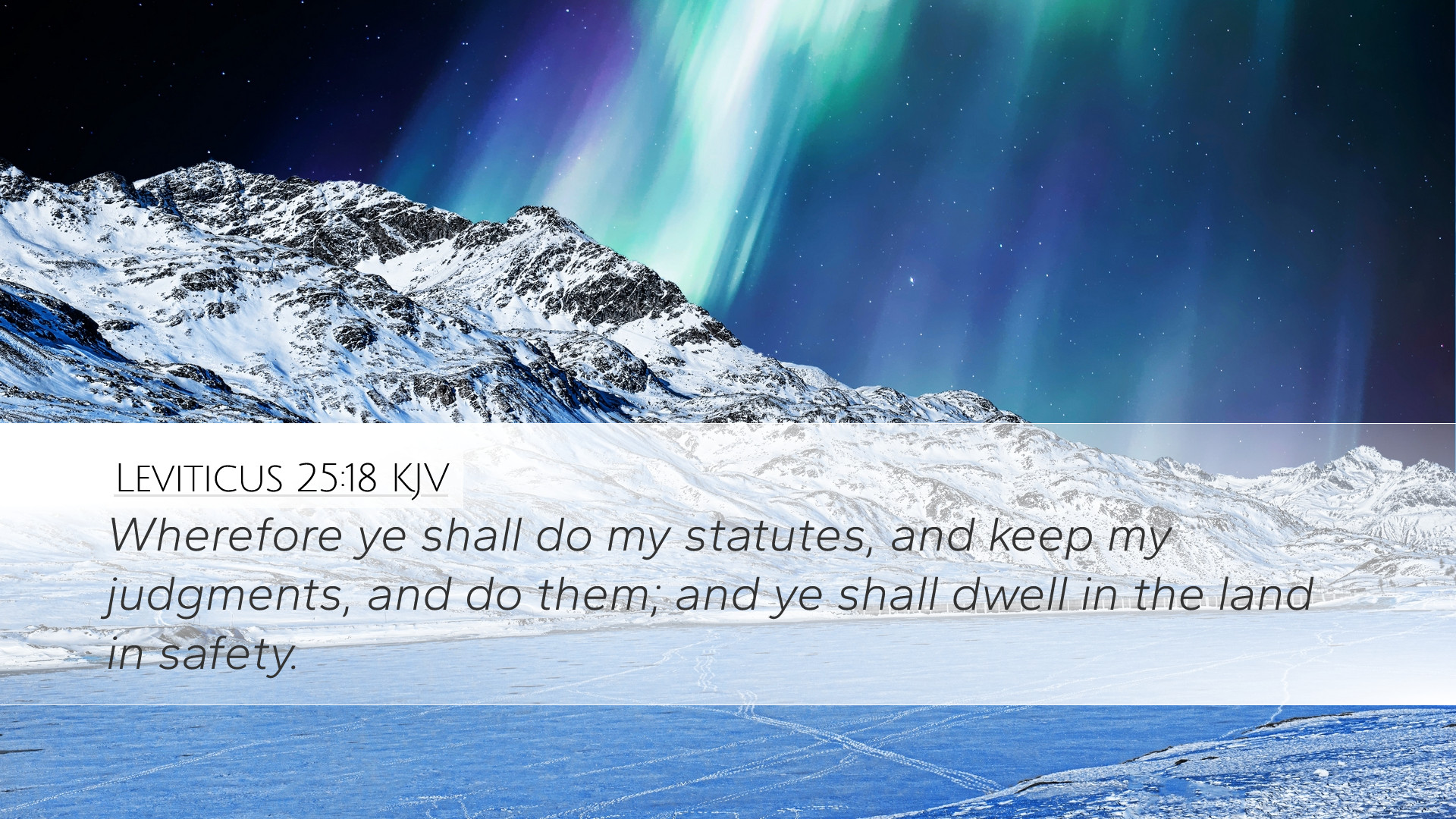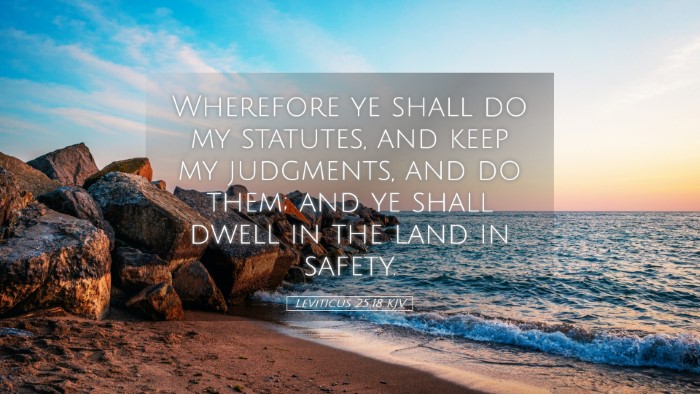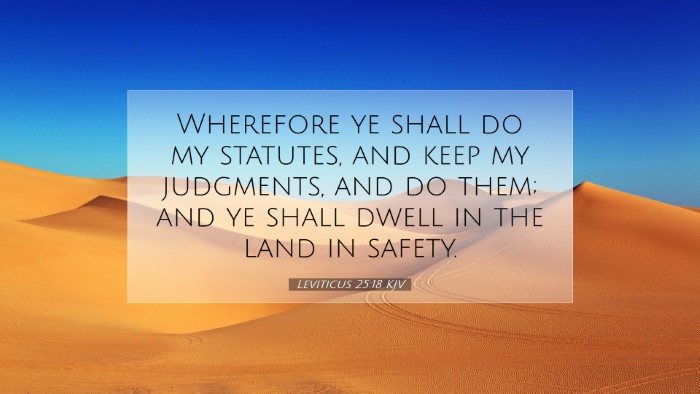Commentary on Leviticus 25:18
Verse Reference: Leviticus 25:18 - "Therefore ye shall do my statutes, and keep my judgments, and do them; and ye shall dwell in the land in safety."
Introduction
This verse forms part of the Holiness Code, where God gives regulations concerning the land, sabbath years, and social justice. It is imperative for pastors, students, theologians, and Bible scholars to understand the theological and practical implications of maintaining a covenant relationship with God as presented in this scripture.
Contextual Overview
The context of this chapter revolves around the land's sanctity and the necessity of Israel's obedience for the fulfillment of God's promises. The laws concerning the Sabbath year (every seventh year) and the Year of Jubilee (every fiftieth year) are significant themes. God's command to do statutes indicates a relationship characterized by action—merely hearing the laws without adherence is insufficient.
Commentary Insights
Matthew Henry's Perspective
According to Matthew Henry, Leviticus 25:18 encapsulates the essential nature of obedience to God’s commands. He emphasizes that a proper fear of God’s judgments leads to a life marked by integrity and righteousness. In keeping God’s statutes, the Israelites are promised safety and prosperity in their land. Henry reasons that true safety comes from living in accordance with God’s will, not merely from physical defenses or human measures.
Albert Barnes' Observations
Albert Barnes expands on the implications of dwelling in the land in safety. He notes that the statutes and judgments given by God are designed not only for their immediate benefit but also for the establishment of a lasting legacy rooted in righteousness. Barnes highlights that the declaration of divine protection associated with obedience suggests a profound theological insight: God's favor is not arbitrary but is contingent upon the faithfulness and obedience of His people.
Adam Clarke's Insights
Adam Clarke offers a comprehensive view of the agricultural and social aspects of the commandments in this chapter. He elaborates on the agricultural practices mandated by God, implying that when these are followed, they lead to abundant harvests and societal stability. Clarke points out that the promise of safety in the land signifies the peace and security that accompanies a life lived under divine ordinance. The blessings of God cannot be separated from a life reflective of His statutes.
Theological Implications
- Covenantal Relationship: The command to keep God’s statutes signifies a covenantal relationship where blessings are contingent upon obedience.
- Divine Protection: Safety in the land serves as an assurance that God’s providence is tied to ethical and moral living.
- Social Justice: The focus on statutes also highlights the importance of justice and equity among community members, aligning with the larger theme of communal responsibility.
Practical Applications
The admonition given in Leviticus 25:18 can lead to profound applications for contemporary believers:
- Obedience to God’s Word: Just as the Israelites were instructed to follow God’s statutes, modern Christians are called to prioritize obedience in all dimensions of life.
- Community and Social Responsibility: The teachings underscore the importance of fostering community through just practices, ensuring that social justice is a foundational principle in any church or ministry.
- Faith and Assurance: Believers today can find reassurance in knowing that obedience to divine laws brings spiritual and sometimes temporal safety and peace.
Conclusion
Leviticus 25:18 stands as a vital piece of scripture that reinforces the centrality of obedience in the life of believers. Drawing from the insights of scholars like Matthew Henry, Albert Barnes, and Adam Clarke, this verse elucidates the relationship between divine law and human experience. Obedience is not merely about rule-following but is intricately tied to experiencing safety and security in God's promised inheritance. Consequently, this passage invites pastors, theologians, and scholars alike to pursue a deeper understanding of living out God’s statutes in their hearts, churches, and communities.


